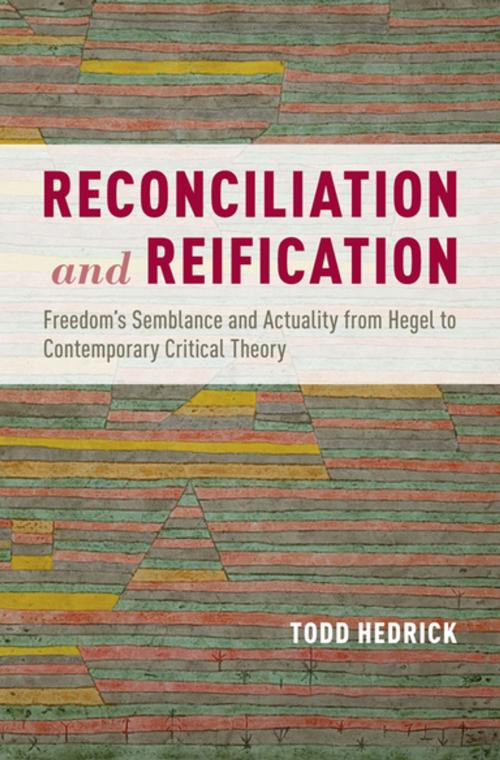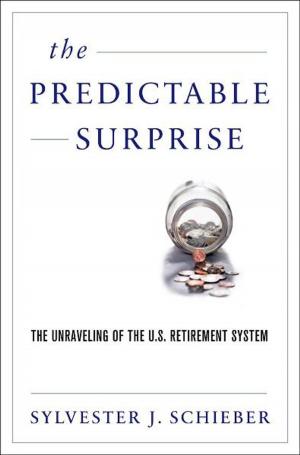Reconciliation and Reification
Freedom's Semblance and Actuality from Hegel to Contemporary Critical Theory
Nonfiction, Religion & Spirituality, Philosophy, History, Criticism, & Surveys, Political, Social & Cultural Studies, Political Science, Politics, History & Theory| Author: | Todd Hedrick | ISBN: | 9780190634049 |
| Publisher: | Oxford University Press | Publication: | November 1, 2018 |
| Imprint: | Oxford University Press | Language: | English |
| Author: | Todd Hedrick |
| ISBN: | 9780190634049 |
| Publisher: | Oxford University Press |
| Publication: | November 1, 2018 |
| Imprint: | Oxford University Press |
| Language: | English |
The critical theory tradition has, since its inception, sought to distinguish its perspective on society by maintaining that persons have a deep-seated interest in the free development of their personality--an interest that can only be realized in and through the rational organization of society, but which is systematically stymied by existing society. And yet tradition has struggled to specify this emancipatory interest in a way that is neither excessively utopian nor accommodating to existing society. Despite the fact that Hegel's concept of reconciliation is normally thought to run aground on the latter horn of this dilemma, this book argues that reconciliation is the best available conceptualization of emancipatory interest. Todd Hedrick presents Hegel's idea of freedom as something actualized in individuals' lives through their reconciliation with how society shapes their roles, prospects, and sense of self; it presents reconciliation as less a matter of philosophical cognition, and more of inclusion in a responsive, transparent political process. Hedrick further introduces the concept of reification, which--through its development in Marx and Lukács, through Horkheimer and Adorno--substantiates an increasingly cogent critique of reconciliation as something unachievable within the framework of modern society, as social forces that shape our identities and life prospects come to appear natural, as part of the way things just are. Giving equal weight to psychoanalysis and legal theory, this work critically appraises the writings of Rawls, Honneth, and Habermas as efforts to spell out a reconciliation more democratic and inclusive than Hegel's, yet still sensitive to the reifying effects of legal systems that have become autonomous and anonymous.
The critical theory tradition has, since its inception, sought to distinguish its perspective on society by maintaining that persons have a deep-seated interest in the free development of their personality--an interest that can only be realized in and through the rational organization of society, but which is systematically stymied by existing society. And yet tradition has struggled to specify this emancipatory interest in a way that is neither excessively utopian nor accommodating to existing society. Despite the fact that Hegel's concept of reconciliation is normally thought to run aground on the latter horn of this dilemma, this book argues that reconciliation is the best available conceptualization of emancipatory interest. Todd Hedrick presents Hegel's idea of freedom as something actualized in individuals' lives through their reconciliation with how society shapes their roles, prospects, and sense of self; it presents reconciliation as less a matter of philosophical cognition, and more of inclusion in a responsive, transparent political process. Hedrick further introduces the concept of reification, which--through its development in Marx and Lukács, through Horkheimer and Adorno--substantiates an increasingly cogent critique of reconciliation as something unachievable within the framework of modern society, as social forces that shape our identities and life prospects come to appear natural, as part of the way things just are. Giving equal weight to psychoanalysis and legal theory, this work critically appraises the writings of Rawls, Honneth, and Habermas as efforts to spell out a reconciliation more democratic and inclusive than Hegel's, yet still sensitive to the reifying effects of legal systems that have become autonomous and anonymous.















